An auxiliary verb is a verb that adds grammatical or functional meaning to the clause in which it is used. Auxiliary verbs are usually used together with a verb. They can be used to express aspect, voice, modality, tense etc. The main verb is important as it is used to provide the clause's semantic content. A simple expression, for example, would be to say, "I have finished writing this article". Here the verb is writing and the auxiliary verb would be 'have', which helps to express the perfect aspect.
There can be two or more auxiliary verbs as well in a sentence. If you have heard or come across the words 'helping verbs' then they are exactly what auxiliary verbs are! Modal verbs also fall in the category of auxiliary verbs.
They are specifically used to indicate the modality in a clause. Modality here refers to the ability, likelihood, permission or the obligation of the performance of the verb with which it is used. Some examples include the verbs can/could, shall/should, may/might, must etc. They are known as modal verbs as they show the likelihood of a certain action. To use 'could' would mean the ability to perform a task with an option whether to perform or not. However, if 'could' is replaced by 'should' then the task at hand has to be performed regardless of the ability to perform it.
This example hopefully makes you understand what modal verbs are. In English and other Germanic languages, modal verbs are unique in the sense that they have certain grammatical properties. It must be noted here that all modal verbs are auxiliary verbs but not all auxiliary verbs are modal verbs. Modal phrases or semi modals are used to express the same things as modals but are a combination of auxiliary verbs and the preposition to.
Auxiliary verbs usually accompany an infinitive verb or a participle, which respectively provide the main semantic content of the clause. An example is the verb have in the sentence I have finished my lunch. Here, the auxiliary have helps to express the perfect aspect along with the participle, finished. Some sentences contain a chain of two or more auxiliary verbs. Auxiliary verbs are also called helping verbs, helper verbs, or auxiliaries.
Research has been conducted into split inflection in auxiliary verbs. All modal auxiliary verbs are followed by a main verb in its base form ; they can never be followed by other modal verbs, lone auxiliary verbs, or nouns. The verb 'have' can also be used as full verb or a helping verb. The way to differentiate between them is that if 'have' is used as an auxiliary verb, then it has to be followed by a main verb as well. The verb 'have' is used to make compound tenses in active and passive voices, and also used in the making of negative sentences and questions.
It is an irregular verb that changes form according to tense. In many cases it is almost impossible to determine in which sense the writer or speaker has used the expression. This may explain to a certain extent the differences of opinion among grammarians as to this or that particular example.
Some auxiliaries are usually called modal but often act to give grammatical information by forming a tense with a main verb. For this reason, some people will classifywill and would as Primary Auxiliary verbs. That is a sensible approach because both verbs can act in both ways. The classification is then split so when they act as primary modal auxiliaries, that is what they should be called and likewise when they act as modal auxiliary verbs.
Auxiliary verbs "help" other verbs form different tenses and moods; they are used to define when actions take place, or to emphasize other actions or objects in a sentence. For this reason, auxiliary verbs are also called helping verbs. The word that the auxiliary verb is "helping" is called the main verb or full verb. Modal auxiliary verbs are used to uniquely shift the meaning of the main verb they modify, expressing things such as possibility, likelihood, ability, permission, obligation, or intention. As we will see, how and when we use modal verbs greatly affects the meaning of our writing and speech.
As with the primary auxiliary verbs, modal verbs can be used with not to create negative sentences, and they can all invert with the subject to create interrogative sentences. Modal verbs, which may express such notions as possibility ("may," "might," "can," "could") or necessity ("must"). The helping verb 'do' can also act as a full verb only in positive sentences.
When do is used in a negative sentence, it is an auxiliary verb. The helping verb 'do' is also used to make questions for most verbs except other auxiliary verbs and the modal verbs. "Do" is an irregular verb that changes its form according to the tense.
Helping verbs are defined as verbs that help the main verb in a sentence by extending its meaning. They add detail to the main verb and are needed to complete the structure of a sentence. They can also clarify how time is conveyed in a sentence.
As a result, helping verbs are used to create the complicated progressive and perfect verb tenses. Learn about the two types of helping verbs and review examples of each. This obviously means that they have very different uses. Lexical verbs are more about the meaning whereas auxiliary verbs are more about their grammatical effect. Permission supposition with doubt if not prohibition. The modal verbs of english are a small class of auxiliary verbs used to express possibility obligation advice permission ability.
The modal auxiliary verbs are never used as a main verb. In addition, they do not have the five forms that main verbs have. While other auxiliary verbs can be used as a main verb and have the five forms, these modal auxiliary verbs do not. Lexical means "relating to words." Lexical verbs are the main verbs in a phrase or sentence. To put it simply, lexical verbs are any verbs which are not auxiliary verbs.
Lexical verbs carry their own meaning, , and therefore can use but don't necessarily need a helping verb. Lexical verbs are those easily recognizable action words; the word "lexical" indicating the most common use or intention of, in this case, a verb which, as pointed out, is to denote an action. To clarify, most verbs are lexical verbs and, if not lexical verbs, they are auxiliary verbs. As a modal auxiliary verb, will is particularly versatile, having several different functions and meanings. When this occurs, perfect aspect is superior to progressive aspect, e.g.
If the negative forms can't, don't, won't, etc. are viewed as separate verbs , then the number of auxiliaries increases. The verbs do and have can also function as full verbs or as light verbs, which can be a source of confusion about their status. The modal verbs form a subclass of auxiliary verbs. Modal verbs are defective insofar as they cannot be inflected, nor do they appear as gerunds, infinitives, or participles.
These verbs are also called Helping Verbs, as they 'help' the main verb to denote the actions of the subject. They help in making compound tenses of the main verb and also help in making negative statements, questions and passive voice statements. In both these cases the verb is followed by the past participle of a lexical or main verb and used to form what is called the passive voice. The passive is often used when the doer of the action is unimportant or unknown and to lay stress on the action itself and the object of the action. In sentence e., the auxiliary be is used alongside the auxiliary have so this sentence shows both perfect aspect and passive voice. See the section on Conditional Verb Forms for help with the modal auxiliary would.
The shades of meaning among modal auxiliaries are multifarious and complex. Most English-as-a-Second-Language textbooks will contain at least one chapter on their usage. For more advanced students, A University Grammar of English, by Randolph Quirk and Sidney Greenbaum, contains an excellent, extensive analysis of modal auxiliaries. Be, have and do can be auxiliaries and main verbs. They have grammatical functions and are used for forming tenses, questions, the passive, etc. Everyone learns, from an early age, that a verb is an action or "doing" word.
Modal verbs are followed by a base verb the plain dictionary definition of a verb like jump help sing play or read. Learn the list of modal verbs in english with grammar rules and example sentences. Have to is often grouped with modal auxiliary verbs for convenience, but in fact it is not a modal verb. Note that the to and better of the quasi-modal verbs function as particles. The verbs dare and need function as modals only within negated verb phrases and within subject-verb inversion of the verb phrase of interrogative sentences. Similarly, we cannot use modal verbs with main verbs that are in a past-tense form; the verb that follows a modal must always be in its base form .
Instead, we either use certain modal verbs that have past-tense meanings of their own, or auxiliary have to create a construction that has a specific past-tense meaning. Auxiliary verbs add grammatical or functional meaning to the clauses in which they are used. They can be used to express aspect, voice, modality, tense, etc. "Have" is an auxiliary, which helps express the perfect aspect.
Auxiliary, in grammar, a helping element, typically a verb, that adds meaning to the basic meaning of the main verb in a clause. Auxiliaries can convey information about tense, mood, person, and number. An auxiliary verb occurs with a main verb that is in the form of an infinitive or a participle.
When it comes to auxiliary verbs, 23 auxiliary verbs stand out. The "Big Three" auxiliary verbs are "be," "have" and "do" in all their forms. But, there are also a few other auxiliary verbs called modal auxiliary verbs. The modal auxiliary verbs are auxiliary verbs that specifically affect the mood of the verb.
Remember that verb mood is about the attitude in which the action or state is expressed-as a statement of fact or opinion, as a wish, as a possibility, or as a command. Auxiliary verbs in general are sometimes called 'helping verbs' and, although that is rather babyish, there is a kernel of truth in it. Primary Auxiliaries help in the sense that they provide grammatical information and tell us how to view the lexical or main verb which follows.
Modal verbs attach differing shades of meaning to the main verbs they modify. It is often the case that this difference in meaning is or seems to be very slight. Although there are a variety of auxiliary verbs in the English language, the following words are a few that often function as helping verbs. Note that these auxiliary verbs may function as action or linking verbs in other cases. My mother seemed to be wondering – some quasi-auxiliaries exist, quasi in the sense that they consist of a small cluster of words rather than a single verb. Here, is the finite verb marked for person, number and tense, followed by [preposition to + base form + -ing form].
If you had analysed as an auxiliary followed by a base form and an –ing form, you would not be incorrect. The UCL internet grammar gives a short list of quasi-auxiliary verbs. Auxiliary verbs are helping verbs, they don't have their own meaning. We use them together with a main verb to make positive, negative and question sentences in various tenses.
In present progressive sentences, the verb expresses action in progress as the speaker says it. "I am typing" is an example of present progressive. In it, the main verb is "type" while the auxiliary verb "be" is conjugated according to the subject, "I." Let's look at a few more examples of present progressive tense. You may have heard auxiliary verbs referred to as helping verbs, but what is this type of verb, and what does it do in English?
When we say it is "helping" a main verb, we mean it's helping to clarify it. Explore what auxiliary verbs are and how they are used in English. The verb 'will' is the only auxiliary verb that can never be a main verb. It is always used as an auxiliary to make future tenses and negative sentences. Also, it remains the same throughout every tense and person.
When we use 'have' in simple tense with an active voice, we use the '-ed' suffixed form of the main verb unless it is an irregular verb. While for progressive tenses we use the '-ing' suffixed form of the main verb. Have is used for only two compound tenses in the passive voice. An auxiliary verb is a helping verb, that is, auxiliary verbs help the main verb. When auxiliary verbs exists, there is a verb phrase. Could is the modal verb in the verb phrase could sing you must attend our wedding.
Modal verbs are different from other auxiliary verbs as they cannot stand alone in a sentence. The English Language acts very strangely in some characteristics that it displays. It is complex at times, and yet sometimes very simple.
There are so many rules but almost none go without exceptions. Yet there are some rules that contradict other rules. We must have all come across the term verbs in our primary schools. Verbs merely refer to action words, that is, words that describe actions.

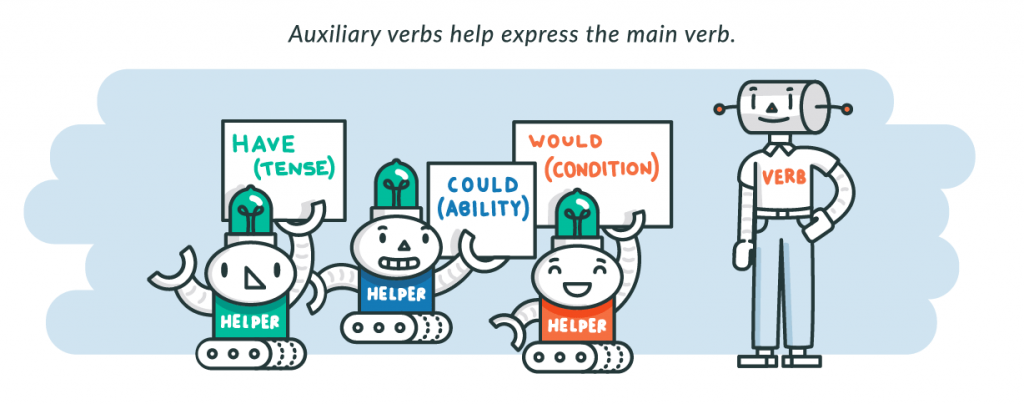
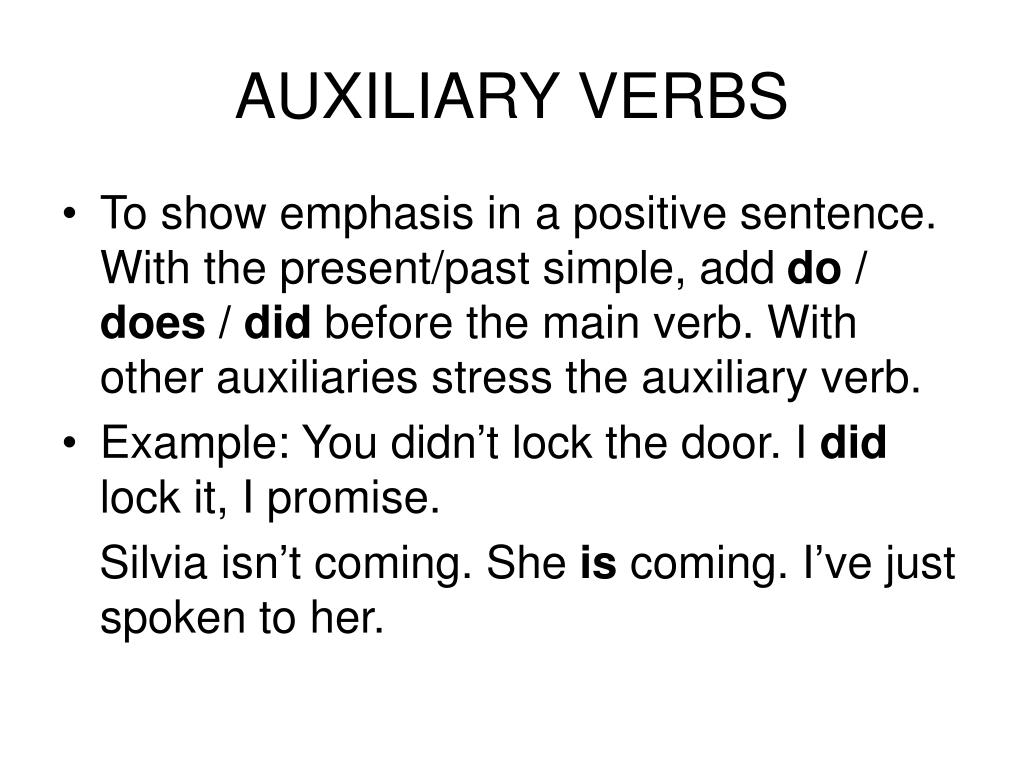

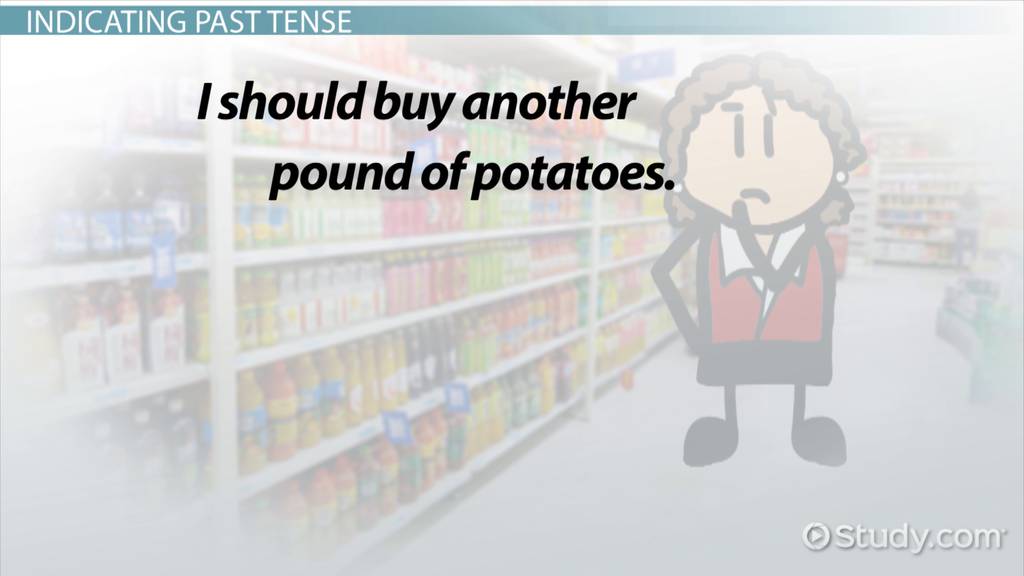








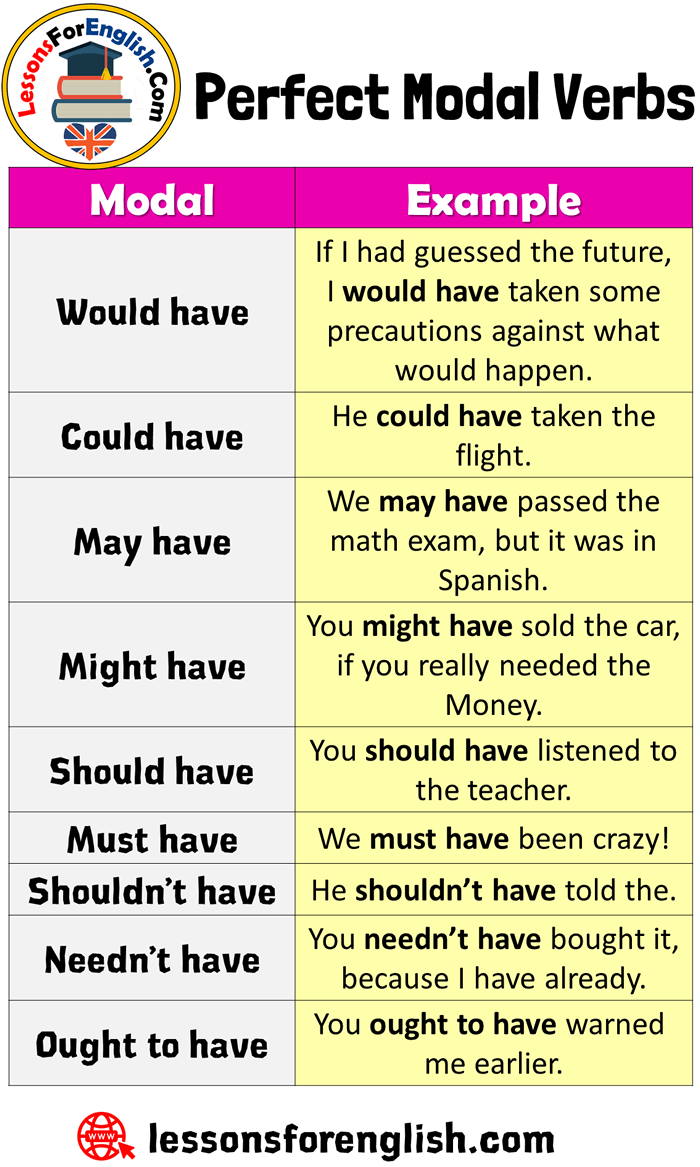
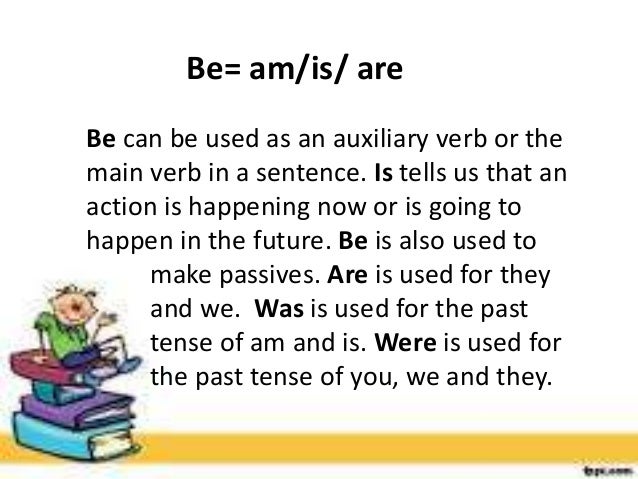
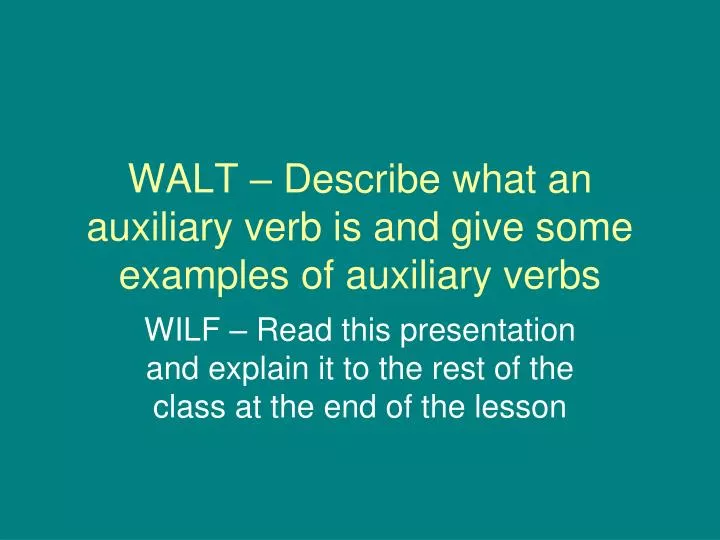












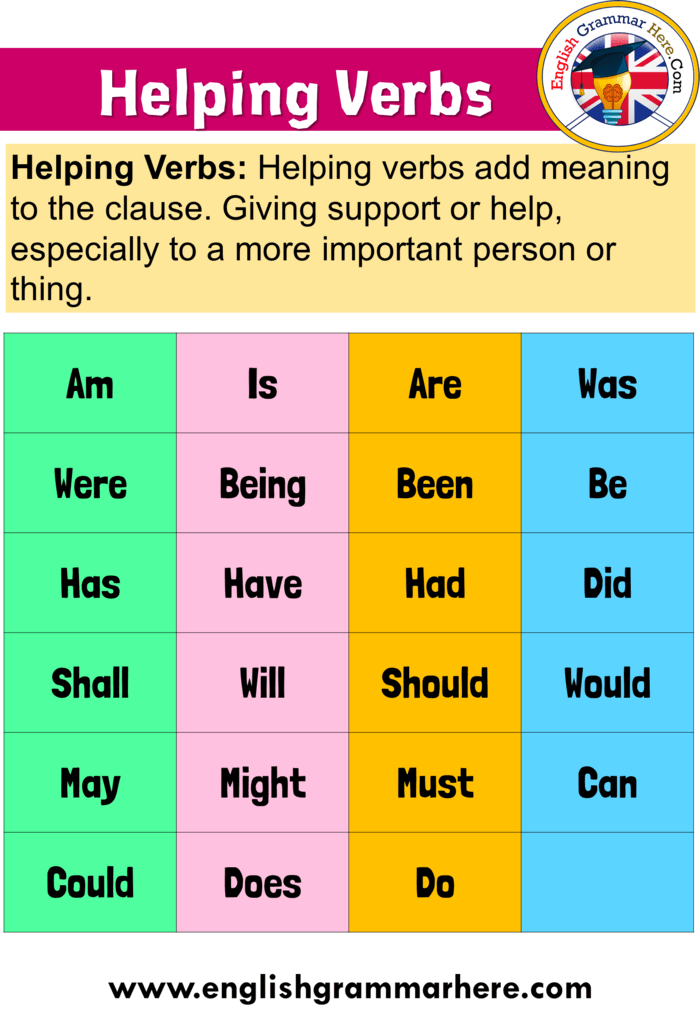

No comments:
Post a Comment
Note: Only a member of this blog may post a comment.